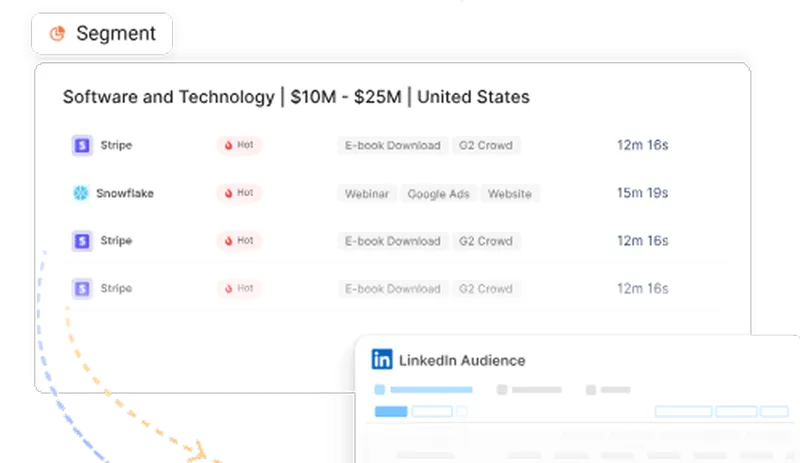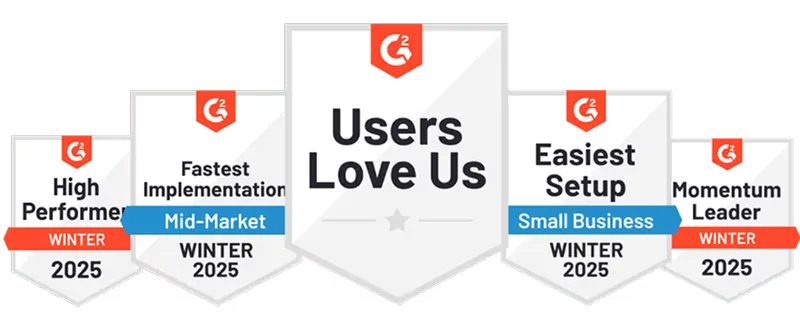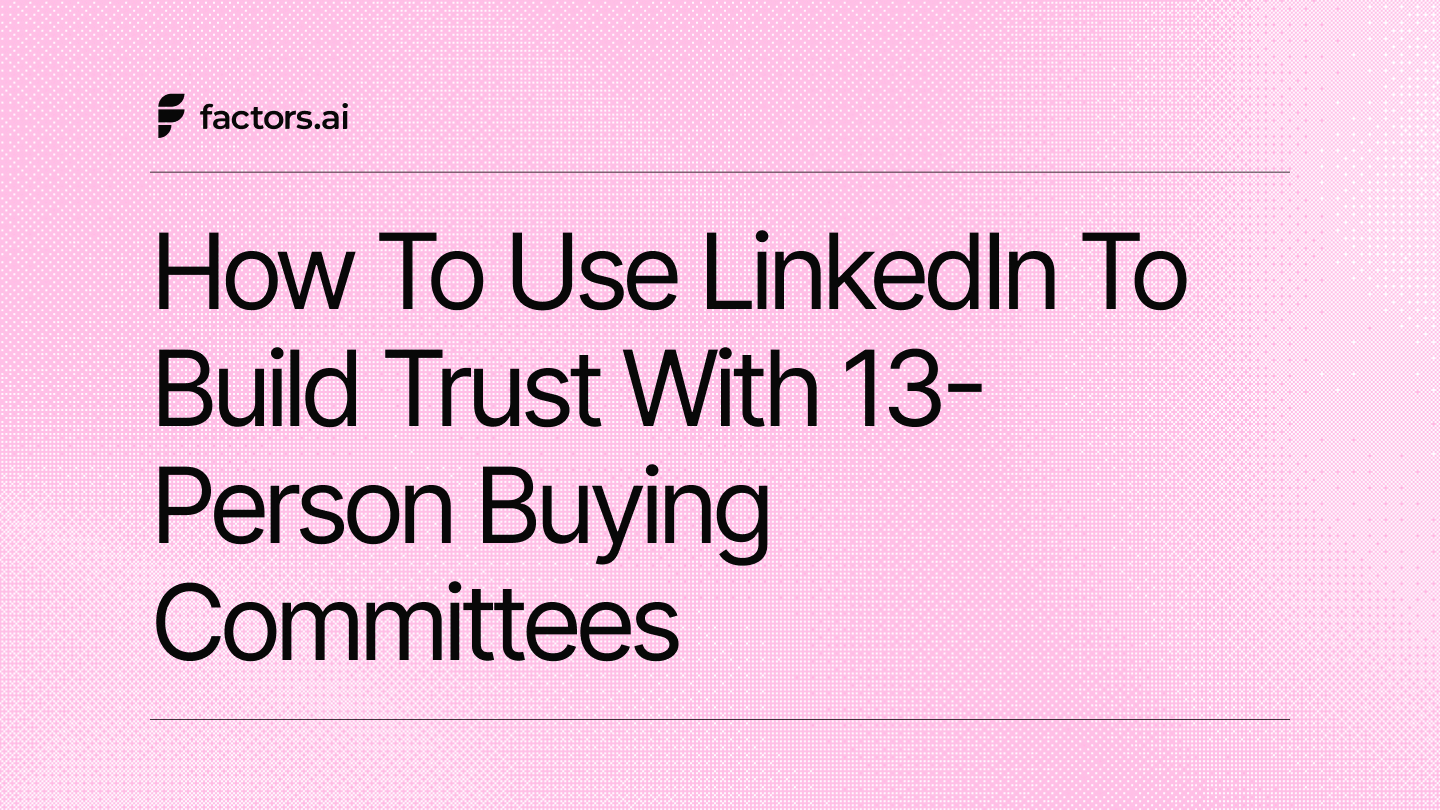4 practices B2B marketers can adopt from their B2C counterparts
Learn more about B2C marketing. Discover 4 practices B2B marketers can adopt to improve engagement and drive more conversions.
Contemporary B2B marketing is closing the gap
In the marketing realm, it’s a common precedent to pit B2B and B2C marketing against each other. And rightly so, given their inherently dissimilar attributes with who they’re selling to, how long it takes to make a purchase, etc. With that said, research and technology have proven there are a lot alike between the two. They might be subtle but understanding those subtleties are impactful for the long haul.
Technology has shown us the prevalence of digital customers in B2B buyer personas is similar to that of B2C. With B2B marketing showing a progressive interest in becoming more brand-oriented, research has shown us the importance of emotional connection at higher levels of a B2B element value. Like in B2C, building a social media presence or making more personalized content to promote branding has shifted the agenda of B2B marketing. To emphasize further, here are 4 things B2B marketing could adopt from B2C marketing.
4 things b2b could adopt from b2c marketing
1. Marketing to People:
This translates to the personalisation of your marketing strategy that will tend to customers’ emotional and logical needs. B2C marketing for the longest time has honed the art of delivering personalized messages to individual prospects. While historically B2B marketing has been informational/educational akin to the needs of the several decision-makers involved. B2B prospects are nurtured with their need to research.
You’ll be surprised to know that adding a personal element to your interaction in your marketing promotes perceived brand value. In fact, B2B customers are 50% more likely to convert when they see personal value, and are 8x likely to pay a premium for a comparable service. The use of dynamic content that corresponds with a user’s needs on a website, and B2B email marketing to establish a personal tone, are some examples of personalisation. This isn’t to diminish the informational/professional element of B2B marketing but to add a personal touch to the same.
2. Building a Community Around the Brand:
From a business relationship to fans of the brand. Presumably, this is much harder for a B2B organization to achieve, while it’s second nature for most B2C brands. OnePlus for example built a community forum that gives users access to news, discussion and social features. This not only promotes the brand and its products but also allows for more customer engagement.
There are different channels through which B2B companies can build their communities. This can include creating a subreddit and uploading infographics on YouTube. Using these mediums could prove to be more useful than building your own forum thanks to the already well established B2B marketing communities within them. If you are keen on building one with a more tight-knit approach, consider forming a public discord server or a public slack channel.
When it comes to building a social media presence in B2B, having a social media presence alone won’t cut the mustard. Instead, a continual effort to build through customer engagement is key. B2C brands often create community posts and polls on Twitter, create short quizzes, answer queries, etc. This dynamic however is hard to build over the professional overtone, but adopting its practice should facilitate some creative and original content. It is also important to utilize a wide array of social media platforms, and not ones that might generate the most prospects.
Influencer marketing is something B2C marketing is all too familiar with. And for good reasons, people are more likely to purchase something with more credibility. But before you do so, you would have to sell the product to your influencer first, which involves a great deal of good faith and trust. The influencer marketing space in B2C is cataclysmically large, to scale the same for B2B would be pretty impractical. Instead, an affiliate program that incentivises existing customers to recommend the product or service to others. Even leaving reviews on authentic platforms like G2 increases the credibility of your brand by having other brands and marketing leaders vouch for it.
3. Buyer Personas and B2B Mobile Traffic:
Building a strong buyer persona is something B2B marketing could use to improve its content strategy and create more engaging content that addresses its challenges. This means understanding your target audience. In B2B this represents all the decision-makers involved, their pain points, goals and most importantly intent data. Research shows that B2B companies that utilize buyer personas in their content strategy perform better.
Speaking of buyer personas, it’s not unusual to expect a large portion of B2C buyers to use their mobile devices for research and queries. But what if I told you the use of mobile phones is gradually becoming the source of a lot of B2B search queries, over 50% of it to be precise. More buyers are using their phones for B2B research during work and leading organizations are generating 40% of revenue through it. Considering that mobile-first B2B generates higher engagement, site traffic, search queries and leads. Maybe it’s worth adopting from our B2C cousins.
4. Privacy and Privacy first marketing:
Becoming a privacy-first business is a big deal in this current digital climate. Given that the customer pool for the average B2C marketer is larger and its not so admirable track record with data security and privacy. More B2C marketers are becoming more proactive with their data and how they interact with it. This concerns B2B marketers as well, from a business perspective, data security is paramount. Educating yourself in B2C data security practices can be useful as most of the regulations governing these practices and the use of cookies stems from B2C practices in the past. To learn more about becoming a privacy-first business refer to this blog.
It's not hard to believe that the line between B2B and B2C marketing is getting blurry. At the very least they share the same goals. To generate as many leads and convert them. While contemporary B2B marketing adopts features of B2C marketing, the same could be said the other way around. Their culmination of experience in lead generation and conversion brings a lot to the table for the future of marketing methodology.
See how Factors can 2x your ROI
Boost your LinkedIn ROI in no time using data-driven insights


See Factors in action.
Schedule a personalized demo or sign up to get started for free
LinkedIn Marketing Partner
GDPR & SOC2 Type II
.svg)







.jpg)


